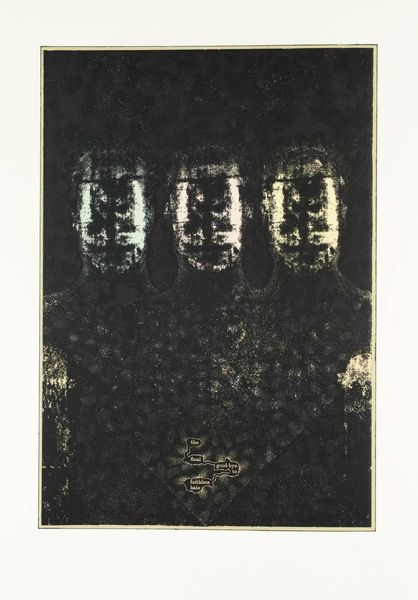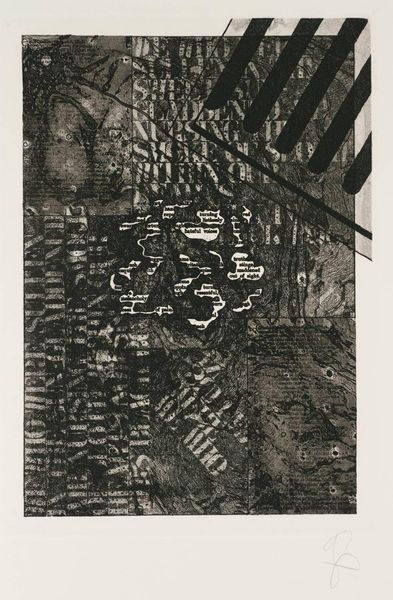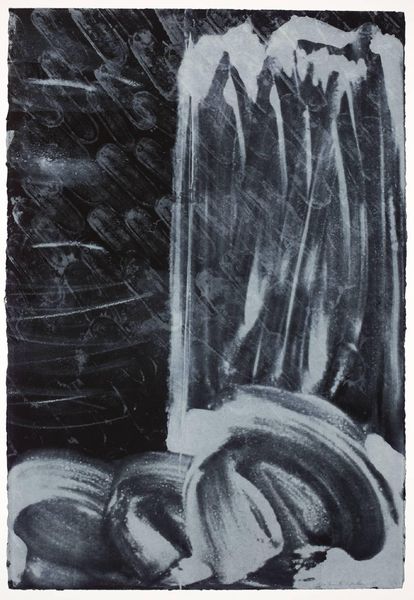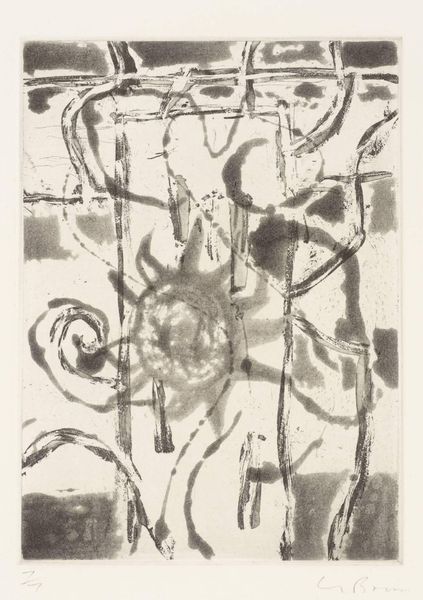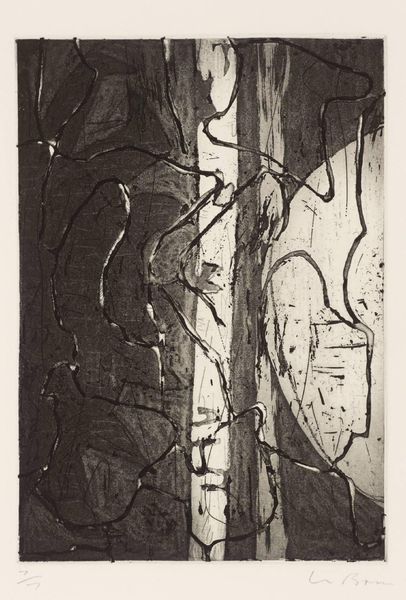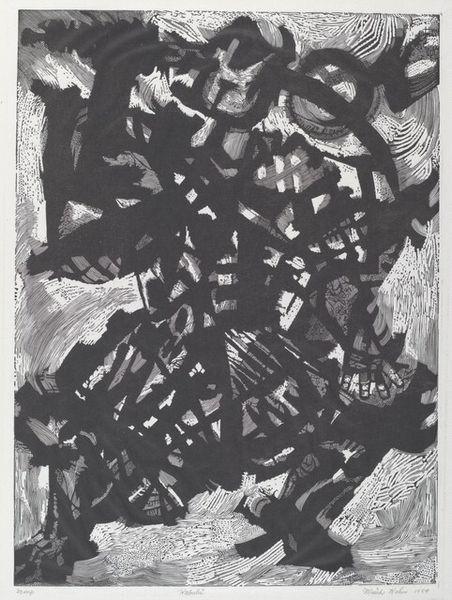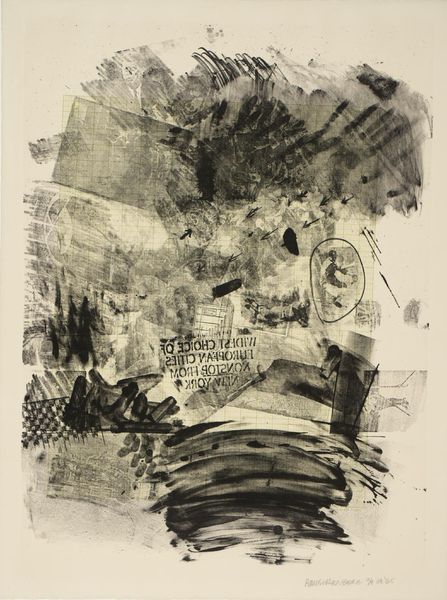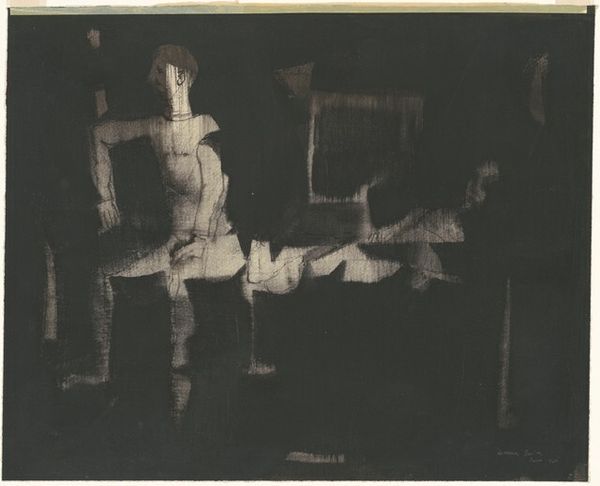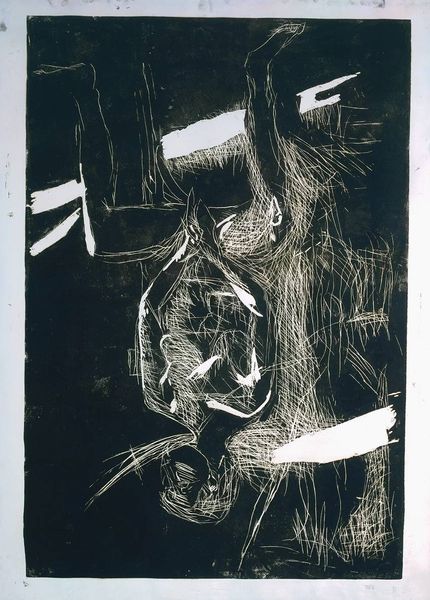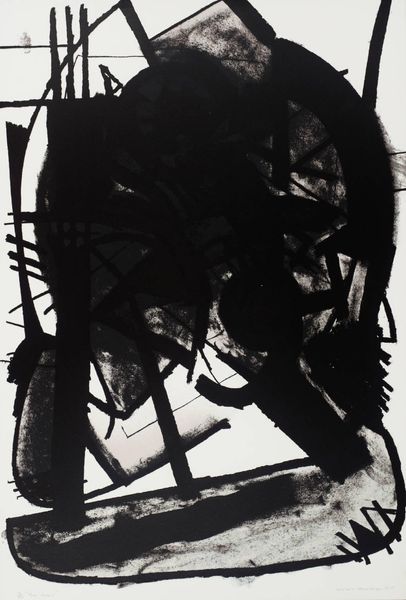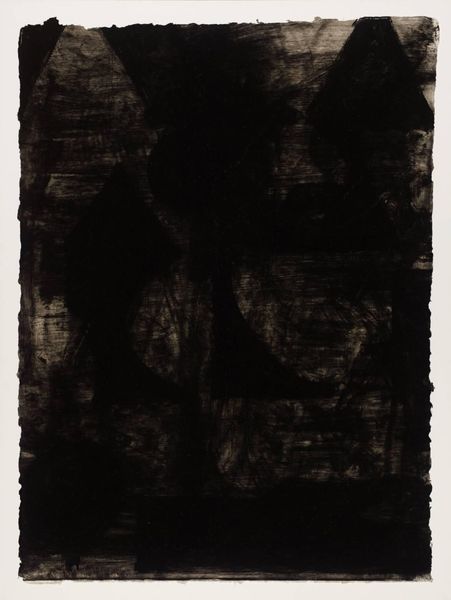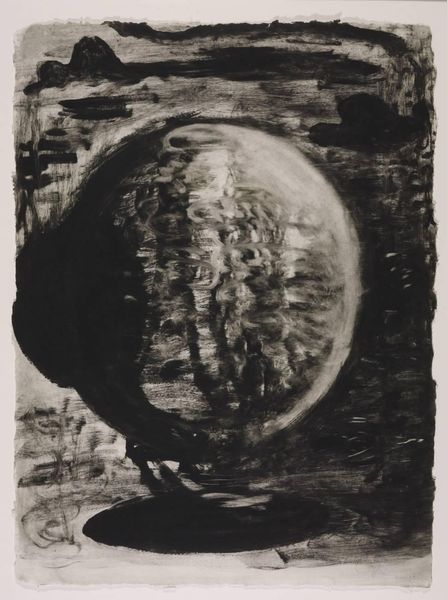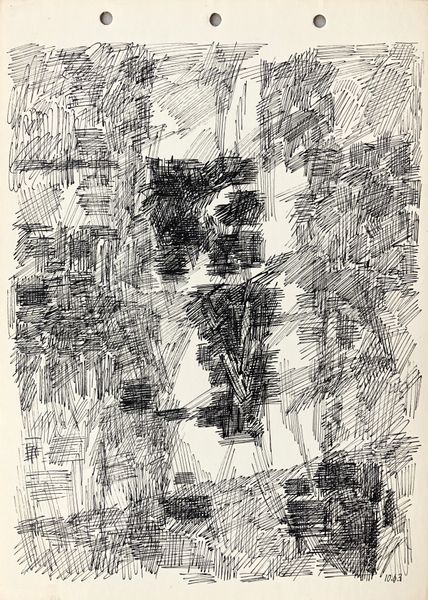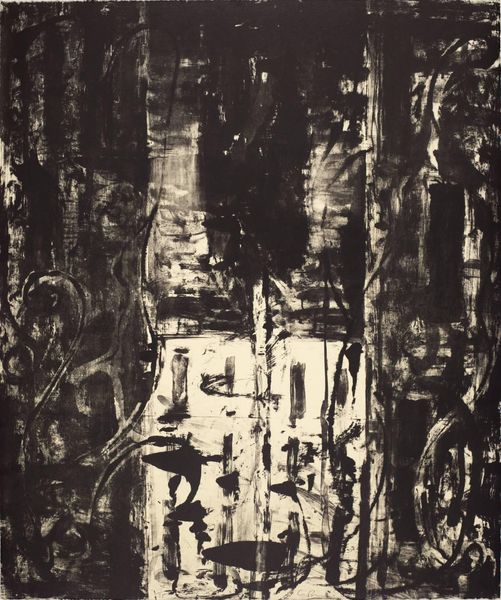
Dimensions: image: 543 x 387 mm
Copyright: © The estate of Dieter Roth | CC-BY-NC-ND 4.0 DEED, Photo: Tate
Editor: This stark, black-and-white print, titled "3" by Dieter Roth, makes me think of something decaying, like an old photograph left out in the elements. What historical context might shed light on its imagery? Curator: Roth's work often critiques the art market itself. The deliberate crudeness, the apparent lack of preciousness—isn't that a powerful statement against the commodification of art? Do you see how the grid-like structures and overlaid circles might also hint at systems of control and repetition? Editor: Yes, I do. It’s like he’s deliberately undermining any sense of traditional artistic skill or beauty. So, by making something that looks disposable, he's challenging the value system of the art world? Curator: Precisely. And think about the era: post-war anxieties, the rise of consumerism. Roth's art becomes a visual rebellion against those forces. Seeing it that way, does it alter your initial interpretation? Editor: Absolutely. I was focused on the aesthetic decay, but now I see the intellectual rebellion simmering beneath the surface. Curator: And that’s the power of understanding art within its historical and cultural moment.
